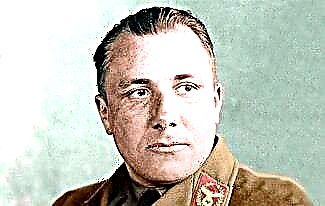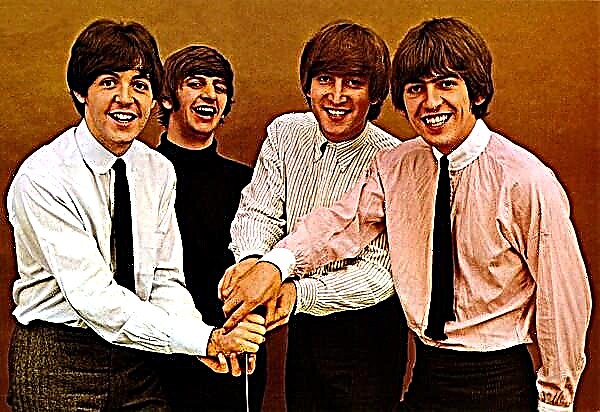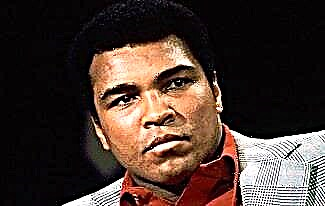Diogenes of Sinop - Ancient Greek philosopher, student of Antisthenes, the founder of the Cynic school. It was Diogenes who lived in a barrel and, walking in the daytime with a lamp, was looking for an "honest man." As a cynic, he disdained all culture and traditions, and also despised all forms of luxury.
Diogenes's biography is filled with many aphorisms and interesting facts from life.
So, before you is a short biography of Diogenes.

Diogenes biography
Diogenes was born around 412 BC. in the city of Sinop. Historians know almost nothing about his childhood and youth.
What we know about the biography of the thinker fits into one chapter of the book "On the life, teachings and sayings of famous philosophers", authored by his namesake Diogenes Laertius.
Diogenes of Sinop grew up and was brought up in the family of a money-lender and a usurer named Hickesius. Over time, the head of the family was arrested for coin counterfeiting.
It is curious that they also wanted to put Diogenes behind bars, but the young man managed to escape from Sinop. After long days of wandering, he ended up in Delphi.
It was there that Diogenes asked the oracle what to do next and what to do. The oracle's answer, as always, was very abstract and sounded like this: "Engage in a reassessment of values."
However, at that time in his biography, Diogenes did not pay attention to the advice given to him, continuing his journey.
Diogenes philosophy
During his wanderings, Diogenes reached Athens, where he heard the speech of the philosopher Antisthenes in the main square of the city. What Antisthenes said made a great impression on the guy.

As a result, Diogenes decided to become a follower of the teachings of the Athenian philosopher.
Since he had no money, he could not rent a room, let alone buy a house. After some deliberation, Diogenes took drastic measures.
The desperate apprentice made his home in a large ceramic barrel, which he dug in near the town square. This is what gave rise to the expression "Diogenes barrel".
It is worth noting that Antisthenes was very annoyed by the presence of an annoying stranger. Once he even beat him with a stick to get him to leave, but this did not help.
Then Antisthenes could not even imagine that it was Diogenes who would become the brightest representative of the Cynic school.
Diogenes' philosophy was based on asceticism. He was alien to any benefits to which the people around him were so eager.
The sage was drawn to unity with nature, ignoring laws, officials and religious leaders. He called himself a cosmopolitan - a citizen of the world.
After the death of Antisthenes, the attitude of the Athenians towards Diogenes deteriorated even more and there were reasons for this. The townspeople thought he was crazy.

Diogenes could engage in masturbation in a public place, stand naked under the shower and commit many other inappropriate acts.
Nevertheless, every day the fame of the crazy philosopher became more and more. As a result, Alexander the Great himself wanted to talk to him.
Plutarch says that Alexander waited a long time for Diogenes himself to come to him to express his respect, but he calmly spent his time at home. Then the commander was forced to visit the philosopher on his own.
Alexander the Great found Diogenes basking in the sun. Approaching him, he said:
- I am the great Tsar Alexander!
- And I, - answered the sage, - the dog Diogenes. Whoever throws a piece - I wag, who does not - I bark, whoever is an evil person - I bite.
“Are you afraid of me?” Alexander asked.
- And what are you, good or evil? The philosopher asked.
“Good,” he said.
- And who is afraid of good? - concluded Diogenes.
Struck by such answers, the great commander later allegedly said the following:
"If I were not Alexander, I would like to become Diogenes."

The philosopher repeatedly entered into heated debates with Plato. However, he also clashed with other prominent thinkers, including Anaximenes of Lampsax and Aristippus.
Once the townspeople saw Diogenes in the afternoon walking through the city square with a lantern in his hands. At the same time, the "crazy" philosopher periodically shouted the phrase: "I am looking for a man."
In this way, the man showed his attitude towards society. He often criticized the Athenians, expressing a lot of negative reviews against them.
Once, when Diogenes began to share deep thoughts with passers-by right on the market, no one paid attention to his speech. Then he chirped sharply like a bird, after which a lot of people immediately gathered around him.
The sage said with annoyance: "This is the level of your development, after all, when I said smart things, they ignored me, but when I cried like a rooster, everyone began to listen to me with interest."
On the eve of the war between the Greeks and the Macedonian king Philip 2, Diogenes sailed to the coast of Aegina. However, while sailing, the ship was captured by pirates who either killed the passengers or took them prisoner.
After becoming a prisoner, Diogenes was soon sold to the Corinthian Xeanides. The owner of the philosopher instructed him to educate and educate his children. It should be admitted that the philosopher was a good teacher.

Diogenes not only shared his knowledge with the children, but also taught them to ride and throw darts. In addition, he instilled in them a love of physical training.
Followers of the teachings of Diogenes, offered the sage to redeem him from slavery, but he refused. He stated that even in this state of affairs he could be - "the master of his master."
Personal life
Diogenes had a negative attitude towards family life and government. He publicly said that children and wives are common, and there are no borders between countries.
During his biography, Diogenes wrote 14 philosophical works and several tragedies.
Death
Diogenes died on June 10, 323 at the age of about 89 years. At the request of the philosopher, he was buried face down.
A marble tombstone and a dog, which personified the life of Diogenes, were installed on the cynic's grave.
Diogenes Photos












